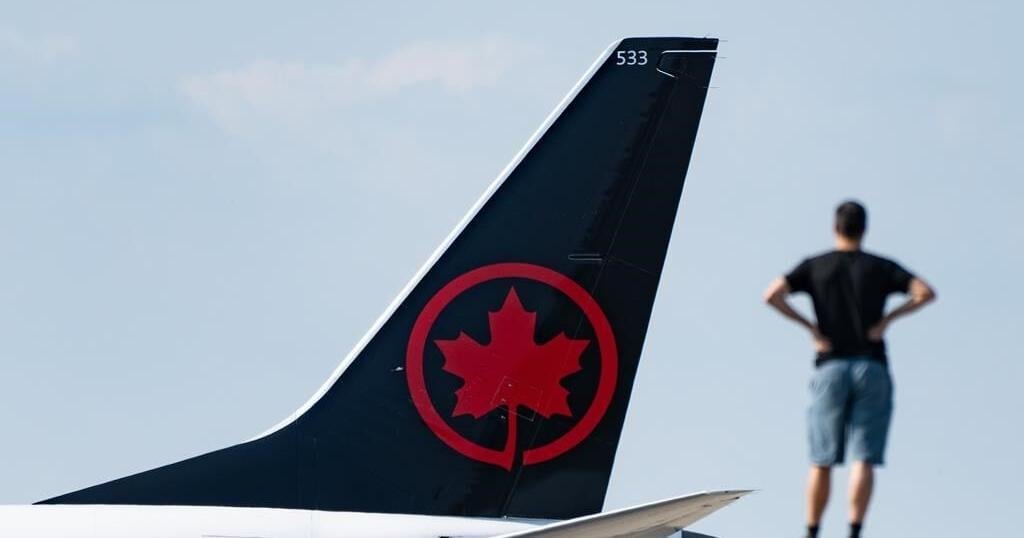TORONTO – “The Life of Chuck,” an offbeat drama from writer-director Mike Flanagan, is the People’s Choice Award winner at this year’s Toronto International Film Festival.
The top TIFF award, which is voted on by audiences, was handed out Sunday as the 11-day festival rolled into its final hours. Other prizes were bestowed on Matthew Rankin’s “Universal Language,” Sophie Deraspe’s “Shepherds” and a Tragically Hip docuseries.
Flanagan is best known for his Netflix horror fare, including “The Haunting of Hill House” and “Midnight Mass.” His latest, which is adapted from a Stephen King story, strays from that genre with a quirky portrait of a divorced man, played by Chiwetel Ejiofor, who can’t escape a looming presence that’s infiltrated every corner of his life.
In announcing the award, TIFF CEO Cameron Bailey read a thank-you note from Flanagan who said he was “absolutely overwhelmed” and never expected to win the prize, which is considered a bellwether for Oscar attention.
Last year’s People’s Choice winner “American Fiction” went on to nab five Academy Award nominations and won best adapted screenplay, while other past People’s Choice picks include best picture winners “Green Book,” “12 Years a Slave” and “The King’s Speech.”
Runners-up for this year’s People’s Choice award were Jacques Audiard’s Spanish-language musical crime thriller “Emilia Pérez” and Sean Baker’s Palme d’Or winner “Anora.”
Coralie Fargeat’s twisted body-horror feature “The Substance,” starring Demi Moore as a washed-up Hollywood star who goes to extremes to keep her youth, won the audience award for best Midnight Madness film.
The People’s Choice for best documentary went to “The Tragically Hip: No Dress Rehearsal,” a four-hour docuseries directed by Mike Downie about his late brother Gord’s influential Canadian rock band.
The Hip doc, which debuts Friday on Prime Video, helped launch TIFF a little more than a week ago when a congregation of the band’s fans gathered for a singalong to “Bobcaygeon” and several of their other hits on a street near the TIFF Lightbox.
“It’s been a great ride,” Downie said as he reflected on the experience while clutching his award.
“(The Hip was) beloved in this country…. People believed in this band, and the band never did anything to jeopardize that trust. So yeah, the People’s Choice award seems very appropriate.”
“The Life of Chuck” is in an unusual position for a TIFF People’s Choice honouree.
Unlike many past winners, its producers came to the festival still seeking a distributor, which means it has no release date and may not be out in time for awards season.
However, like many past winners, TIFF’s CEO said “The Life of Chuck” has certain qualities that give audiences “big feels” that stick with them long after the film ends.
“With ‘The Life of Chuck,’ people reflect on their own lives and the lives of people they’re close to,” Bailey said.
“When you come out of a movie having that kind of emotional reaction, that’s what often prompts a vote.”
The Best Canadian Discovery Award, worth $10,000, went to Rankin’s second feature “Universal Language,” set in a Canada where Farsi and French are the two official languages and the two cultures coexist in a dreamlike alternate universe.
“This is a movie which we really did by our heart,” said Ila Firouzabadi, co-writer of the film.
“The message is really about solidarity and friendship. It’s something between a Tehran, Winnipeg (and) Montreal intersection and I hope from that intersection we are passing our compassion.”
The Best Canadian Feature Award, also worth $10,000, went to Sophie Deraspe’s “Shepherds,” about a young Montrealer frustrated with the emptiness of his marketing job who flees to the French Alps for a new life.
The juried FIPRESCI Award, from the International Federation of Film Critics, went to Somalia’s “Mother Mother,” directed by Somali-Canadian recording artist K’naan Warsame.
The $20,000 Platform Award, selected by an in-person international jury, went to “They Will Be Dust,” a co-production between Spain, Italy and Switzerland directed by Carlos Marques-Marcet.
The filmmaker has been caught in a whirlwind experience over the past week. He premiered his film at TIFF on its opening weekend and then returned to Madrid, only to get a call from TIFF organizers urging him to make his way back to Toronto for a big announcement.
“I was so tired, but I was so excited — and I wanted to meet Atom Egoyan,” he said of the Canadian director sitting on the three-person jury that unanimously selected his film.
Marques-Marcet’s “They Will Be Dust” is inspired by a real couple’s wish to embark on assisted death together. The film is also part contemporary-dance musical.
He recognizes those elements might make it a tough sell for some audiences, yet he’s hopeful the TIFF recognition will give his unconventional film a chance at greater exposure.
“Movies are not sports. It’s not about, ‘Who is the winner?'” he said.
“But obviously these things help a lot to try to push the barriers.”
Several awards introduced in recent years to elevate projects made by Black and Indigenous creators were not awarded at this year’s festival.
TIFF’s Amplify Voices awards, which honoured both the Best BIPOC Canadian Feature as well as the Best BIPOC Canadian First Feature, were removed from this year’s event.
Also missing was the Changemaker Award, which celebrated a festival film that tackled issues of social change.
Representatives for the festival declined to outline their decision to remove the awards.
This report by The Canadian Press was first published Sept. 15, 2024.
























